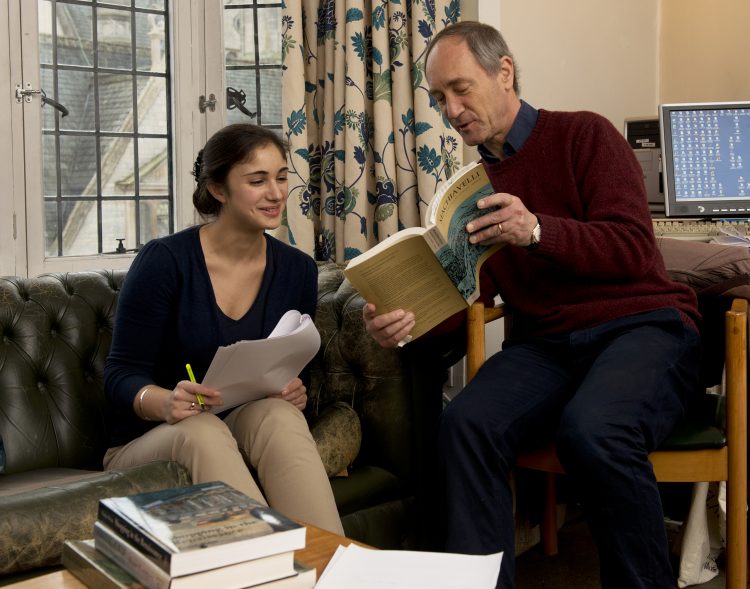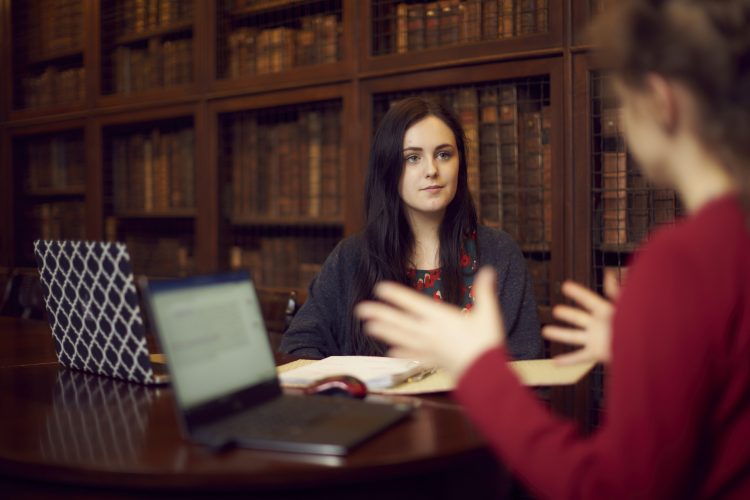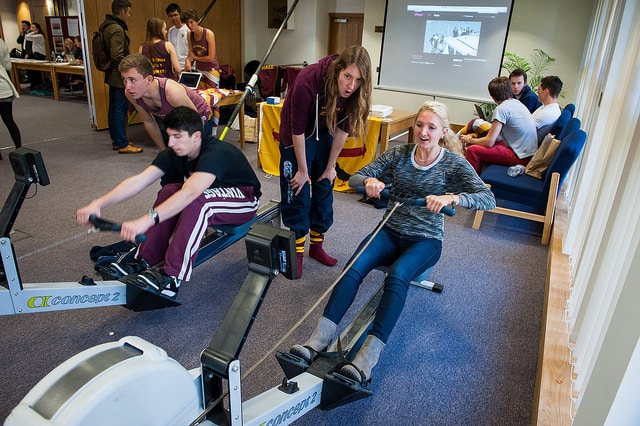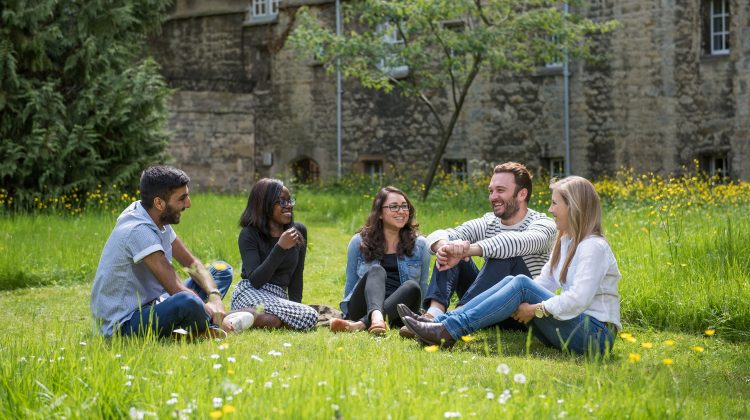Ruchita – History & Politics
Journey to Oxford
I am an international student from India but studied and lived in the UAE.
Why did you choose to study your course?
I always loved history at school! It was the subject where I didn’t feel like I was working since I was always interested in the content. I also had incredible teachers who fostered my interest in history and encouraged me to pursue it. My school didn’t offer politics in sixth form, but I was more inclined towards political history. I enjoyed keeping up with current events and discussing these with friends and family and have always believed that politics is incredibly important in shaping lives and communities. Being from India and living in the Middle East meant that politics was a huge presence throughout my upbringing.
What is your favourite thing about your course?
I love the range and flexibility of the History and Politics degree. Unlike straight history, the ‘HisPol’ degree doesn’t have a period or geography requirement when you choose your modules in second and third year. This means that you can really craft your degree to suit your interests regardless of how niche or random they might be. Although a joint honors degree can sometimes involve a bit of juggling, it also gives you variety in content and approaches. I really appreciate switching between writing essays for History and Politics and enjoy how I can incorporate methods and knowledge from one into the other.
How is your course taught?
History and Politics, like other Humanities degrees, has not many contact hours which means that how you structure your day is up to you! Depending on the modules you pick, you typically have around 2-3 lectures a week with around 2 tutorials a week. Although teaching differs quite a lot depending on your year of study.
In first year, you are required to take a few compulsory papers including Theory of Politics and Practice of Politics as a foundation. In your first year, you start out usually with an essay every week which teaches you how to manage your time quite early on and is essential for when you get to writing two essays a week in second year. I spend about 3 days on an essay on average although this doesn’t always work out as term goes on – I sometimes adjust my day if I spend less time than I wanted to on an essay. You also don’t have to read every item on the reading list! Your tutor will usually highlight the essential reading and don’t be afraid to ask for this if they haven’t done so. Often you can just read the chapters that are relevant to your essay title or skim through the book – leaving more thorough reading for the vacation.
Depending on your options, you might have a mix of History and Politics papers during a term, or you might be doing two papers from either History or Politics. Your typically submit your essay at least 24 hours before the tutorial so that your tutor can structure the topics you discuss accordingly. Tutorials are also the main contact hours of the week and are valuable opportunities to pick the brain of a specialist in the subject. It may be intimidating to have a tutor look at an essay that you’ve spent a week or less on, but that’s part of the teaching method at Oxford. The “mistakes” or misunderstandings that come through in your essays (believe me I make a lot of them!) are meant to be discussed and clarified in tutorials so that you leave with a better understanding of the topic. The aim of the essay is definitely not perfection. You usually just try your best in the time that you have and make the most of tutorials when you come across concepts that you can’t quite grasp.
Describe your average Oxford day…
My average weekday begins with breakfast in college with a couple of friends. It’s a nice time to have a chat about your day and make plans. If I don’t have a lecture that morning, I spend most of my morning working hours in the library getting my reading done for an essay.
If I’ve just finished an essay, I usually do extra-curricular stuff. I spent my second year being part of the Oxford Feminist Society and am now part of Melanin – a society that aims to provide an inclusive space for people of colour in Oxford. Being part of these societies has definitely made me feel more at home in Oxford. It’s a great way to meet incredible and passionate people outside your college who share your interests. I also worked on student journalism and publications in Oxford which requires no previous experience – you just show up and learn on the job.
Around noon, I have a quick lunch with friends. After lunch I often have a tutorial or society meetings to attend where we plan our events or go over work that we’ve been doing over the week. I also work on reading for my essay before dinner.
At around 6pm we go to dinner in the dining hall – this is a great time to catch up with friends around college about their day and have a chat. I try not to work past dinner and so I will usually make plans with friends to go out, or just have a chill evening (watching Twilight…).
Why did you decide to apply to St Edmund Hall? What is your favourite thing about it now you’re here?
I initially applied to Balliol and got assigned to Teddy Hall before interviews. I was really excited to interview at Teddy since I had looked up my tutors beforehand and was in awe of the work they had done and their specialisms. My tutors so far have been incredibly supportive and understanding whilst also challenging me and getting me out of my comfort zone. I also love the fact that Teddy is right in the heart of the city centre, on the High Street, where you have everything you need only a 5-10 minute walk away- including my lectures right across the street!
What helped you prepare for the admissions process?
Admissions test (History Aptitude Test): I went over the previous year’s HAT papers as practice and planned the essays for some of them. I also timed myself writing a complete HAT essays the day before the exam.
Interview: I tried to read around my subjects, especially Politics since my school didn’t offer it. For History I went over source analysis skills and tried to find sources online that I could practice with. I also listened to podcasts on Spotify from The Economist and The New York Times to keep up with the news and listen to their political analysis. I subjected my family to long, drawn out conversations (which usually ended up being monologues) in which I regurgitated this analysis as my own opinion and tried to get them to challenge me on this. Before my actual interview I just tried to relax and have a chill evening by watching Netflix.
What was the biggest misconception you had about studying at Oxford before you came?
I was quite worried that I wouldn’t be able to find a community in which I felt comfortable and that I wouldn’t be able to keep up with the workload. While you may feel out of your comfort zone initially, there will always be people that you get along with here. Within college there are communities that you can engage with to meet new people. The international and BAME officers often set up social events like pub trips and movie nights where you can meet people that share your identity and your experiences. Teddy has also recently passed a motion for a class officer whose role includes trying to ensure that there are welcoming and inclusive spaces for all different class backgrounds. Meeting people through society work has also helped me build a support network outside college.
While I was initially anxious about the workload, I found that there is a lot of support available when you are struggling with this. Tutors are generally very understanding when you need extensions on work and check in when they are made aware that you need a bit of help. I also generally really enjoy my work and learning about my subjects which helps make the workload feel less intense. There are also a range of welfare resources available from the university counselling service to welfare officers within college who organise events and welfare provisions.
What would you tell your 17-year-old self about applying to and studying at Oxford/St Edmund Hall now?
Applying to Oxford may be incredibly intimidating, especially if you come from a background and/or identity that you feel might be under-represented within the institution. The university is nothing if not for its students and if you feel like you would like to apply here you shouldn’t be put off from applying to the college or the university because of its reputation. You will find a welcoming community here and will have range of opportunities open to you!
Where next?




Sport
